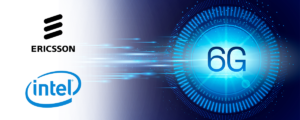
India has achieved the fastest 5G rollout globally, surpassing the 4 lakh milestone within 15 months of the 5G launch. Reliance Jio and Bharti Airtel have been adding 2,000 base tower stations (BTSs) per week, aggressively expanding the network. Despite reaching the majority of cities, revenue from 5G services is yet to materialize, as telecom operators continue to offer 5G free of charge to consumers. Minister of State for Communications, Devusinh Chauhan, revealed that 5G networks have been deployed in 738 districts across the country as of November 24, with over 100 million consumers adopting 5G.
India boasts some of the lowest data rates globally, with a significant reduction in the cost of data from Rs 269 per GB in 2014 to Rs 9.94 per GB in 2023. Despite the rapid 5G rollout, the lack of monetization poses challenges for the telecom sector. Industry executives anticipate lower capital expenditures in the next fiscal year until there is a revenue uptick. While there is an opportunity to transition over 200 million 2G users to 4G/5G, high smartphone prices remain a hurdle.
Reliance Jio addresses this by introducing the low-cost JioBharat feature phone priced at Rs 999, offering an affordable option for users to upgrade to mobile broadband services. Telecom operators have collectively invested over Rs 2 lakh crore in acquiring 5G spectrum and deploying networks without receiving returns on investments. The industry emphasizes the expense of laying fiber, citing challenges in obtaining permissions for the right of way (ROW) despite the Department of Telecommunications framing a policy on the matter. India initiated 5G services in October of the previous year, and both Airtel and Jio are rapidly expanding 5G coverage, with national rollout expected in the coming months.



